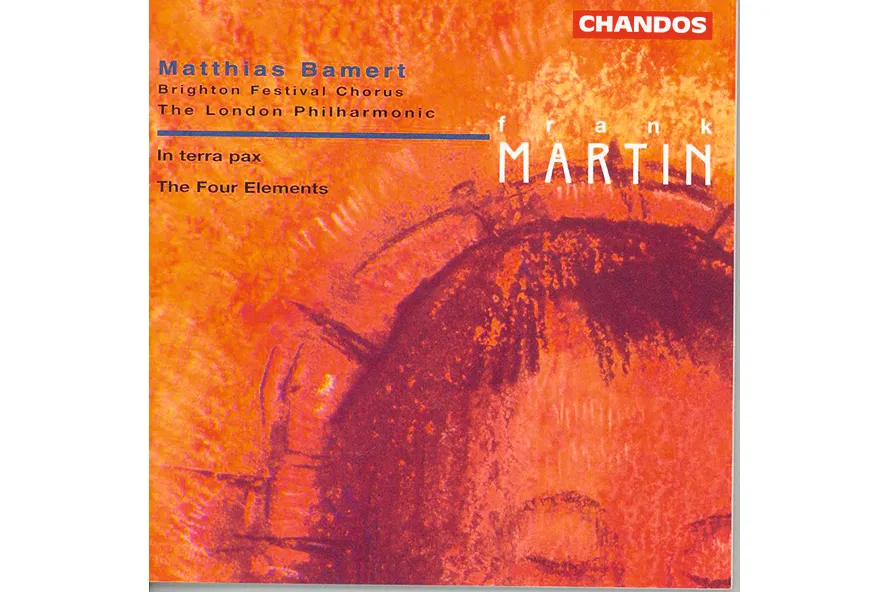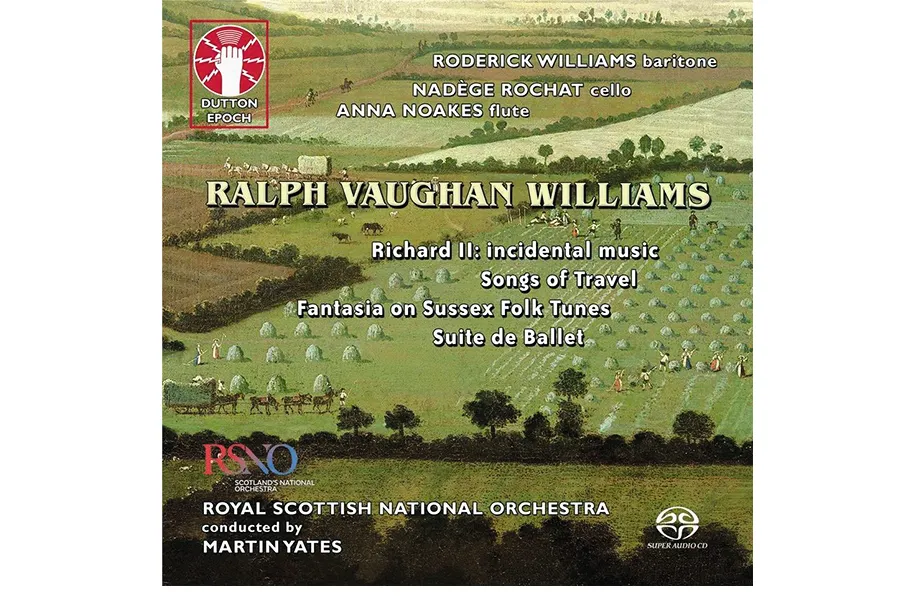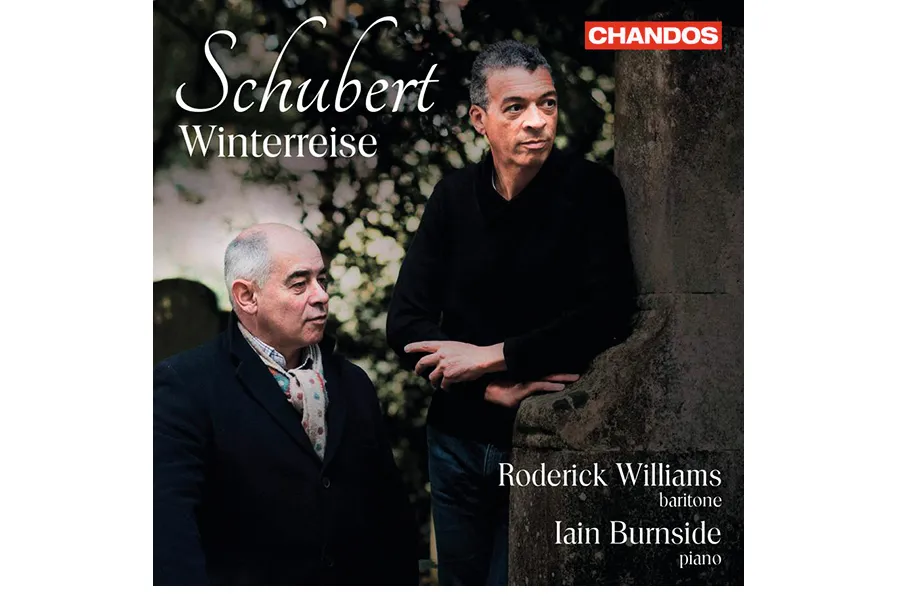He sang at the Coronation, and composed, with fellow composers Nigel Hess and Shirley J Thompson, an orchestral interpretation of one of Charles's favourite hymns for the same occasion. What else do we know about Roderick Williams?
Who is Roderick Williams?
Roderick Williams is an English baritone and composer - one of the most highly respected singers in the UK - known for the sophistication of his voice, the intelligence of his interpretations, the breadth of the repertoire he takes on and his infectious enthusiasm for life and for everything he does. He is also known for being a thoroughly nice chap, with a beaming smile.
Roderick was also one of the 12 composers specially commissioned to write music for the Coronation of King Charles.
- Browse all of our Coronation articles: composers, performers, military bands, orchestras and more
Where did Roderick Williams grow up?
Born in north London, in 1965, to a Welsh father and a Jamaican mother, Williams grew up in High Barnet and attended Christ Church Cathedral School in Oxford and Haberdashers' Aske's Boys' School in Hertfordshire.
How did he get into classical music?
He started singing as a treble when he was six years old, and also played the cello. His mother introduced him to the world of opera by singing along to recordings of Maria Callas while cooking Sunday lunch, and his father played the guitar as a hobby. However, it was listening to a section from Benjamin Britten's Frank Bridge Variations as background music to a short film about glass blowing that really sparked Williams's love of classical music.
Did he go straight into singing after university?
No - despite singing as a chorister in his childhood, and then winning a choral scholarship to Magdalen College, Oxford. On graduating from university he initially trained as a teacher, and worked for several years as Director of Choral Studies at Tiffin Boys' School in Kington-upon-Thames, moonlighting as a singer at weekend concerts.
So how did he change track?
Gradually, he became aware that some of his colleagues from Magdalen College had become professional singers. But the deciding moment was a conversation with his wife, when she asked him what his ambitions were.
Realising that he would love to do what his colleagues had done, and go professional with his singing, he applied, and was accepted, aged 28, on the opera course at the Guildhall School of Music and Drama - and threw himself wholeheartedly at it. He made his debut at the BBC Proms in 1996, in a concert performance of Verdi's Don Carlos. He has been hugely in demand ever since.
What did Roderick Williams composed for the Coronation?
As part of the pre-Coronation service, three composers - Williams, Nigel Hess, and Shirley J Thompson - each wrote contemporary musical responses to the much-loved Irish hymn ‘Be Thou my Vision', one of His Majesty's favourite hymns.
The three composers each created their own orchestral interpretation of the hymn, and wove them together into a single work. Here it is:
What kind of repertoire does Roderick Williams sing?
As an omni-enthusiast, he has sung baroque opera, Mozart, 20th-century English music - especially by Britten - as well as new roles in contemporary works by composers including Michel van der Aa and Sally Beamish. The characters he portrays are widely varied, ranging from the idealistic Billy Budd to the villainous Scarpia from Tosca - a role, he says, that he found very cathartic, despite audiences assuming him to be far too nice to play such a repellant character. He excels in 19th century art song; he loves Bach and Rameau and recently worked on Sound Voice a project exploring the lived experience voice loss.
One thing he doesn't particularly love is musical theatre, and even that he has dipped his toe into, singing Jerome Kern's 'Ol Man River' from the 1936 musical Showboat at the 2014 BBC Proms (in his own orchestral arrangement), a performance that he repeated for charity in an online concert during the pandemic.
And his compositions?
Yep, there have been several of those too - premiered at the Wigmore and Barbican Halls, the Purcell Room and live on national UK radio. Among his choral works are World Without End - a piece to celebrate the centenary of the Royal Air Force; and Now Winter Nights composed for VOCES8. Last year, he signed to Edition Peters, which released an initial eight choral works by him in January 2021.
Does he have children?
Yes, two daughters and a son.
Where does he perform?
Although he does perform abroad, Williams prefers to remain within easy reach of his family. As a result, he has centred most of his work in the UK, performing most frequently with companies including Opera North, Scottish Opera and English National Opera.
Is there anything he wishes he could do better?
Hula-hooping. And swimming front crawl by just kicking his legs; by his own admission, he goes backwards.
Photo: Getty
Roderick Williams on... his finest moment
Martin In terra pax
Roderick Williams (baritone) et al; London Philharmonic Orchestra/Matthias Bamert
Chandos CHAN9465 (1996)

There was a mix-up with the dates for the original baritone that was booked for this recording, and so I stepped in at the last minute. It was literally a day or two before the session that I got the call. I didn’t know much Frank Martin but, having been a choral scholar, I had a background in sight reading, so I thought it was something I could do. I just found the music really exciting; it’s a really austere soundworld.
There wasn’t time for anybody to do any French coaching with me, so I went in with my best O-Level French! There might have been a coach in the recording session to help me, but everything else was done on wits and nerves. If I could reverse-engineer my career, I’d persuade myself to take my languages to A-Level and beyond but I had no idea at that point that I was going to have a career as a singer.
The situation was quite tense, but actually in those moments, unless you do a bad job, everybody is just so grateful that you’re there to rescue the ship that they cut you a lot of slack. I was singing with Della Jones and Martyn Hill, who are my seniors and betters, so I ran with the ball and had a really great time.
Roderick Williams on... his favourite memory
Vaughan Williams Songs of Travel
Roderick Williams (baritone); Royal Scottish National Orchestra/Martin Yates
Dutton Epoch CDLX7359 (2019)

This is a piece I know very well, so I was looking forward to the sessions. I flew to Edinburgh and planned to hire a car and drive to Dundee. But it was the day after one of those storms that’s got someone’s name – Storm Kevin, or something – and trees had been uprooted in Dundee, so it had been pretty bad.
It was pandemonium in the airport; the queue was long and I saw the time peeling away. I realised I wasn’t going to get my hire car, so I got a taxi instead and arrived late in an absolute state. Everyone calmed me down, however, and we did my sessions. The orchestra was wonderful and the Caird Hall acoustics made me sound great.
The piano version of the penultimate song, ‘Bright is the Ring of Words’, is in C, so when the orchestra put down this huge chord of D major it was a bit of a surprise. You can’t ask 80 musicians to transpose down a tone, so I girded my loins and sang it in D.
Roderick Williams on... what he would like to have another go at
Schubert Winterreise
Roderick Williams (baritone), Iain Burnside (piano)
Chandos CHAN20163 (2020)

I think anyone who records feels privileged and flattered to be asked to do it. But there’s also a feeling that you are putting your thoughts down for the end of all time. So anybody who puts on my recording of Schubert might be fooled into thinking this is how I believe Schubert’s Winterreise should go. I’ve sort of gone off that as an idea; I now believe that it’s more a case of ‘this is how I was singing Schubert with Iain Burnside during that recording session in June of last year’. Possibly the next day, Iain and I might perform and indeed record Winterreise quite differently. And the day after that I might perform it with a different pianist and record it wholly differently again.
There’s that age-old argument about recording jazz; you think by preserving it, you’re already limiting your choices. The thing I love about performing the three Schubert song cycles – but Winterreise more than any of them – is the differences I notice along the way. I love that about the piece and that’s why I’d like to return to it again, perhaps at ten-year intervals.
Roderick Williams’s new release ‘Das Mädchen spricht’ from SOMM Recordings is out now
